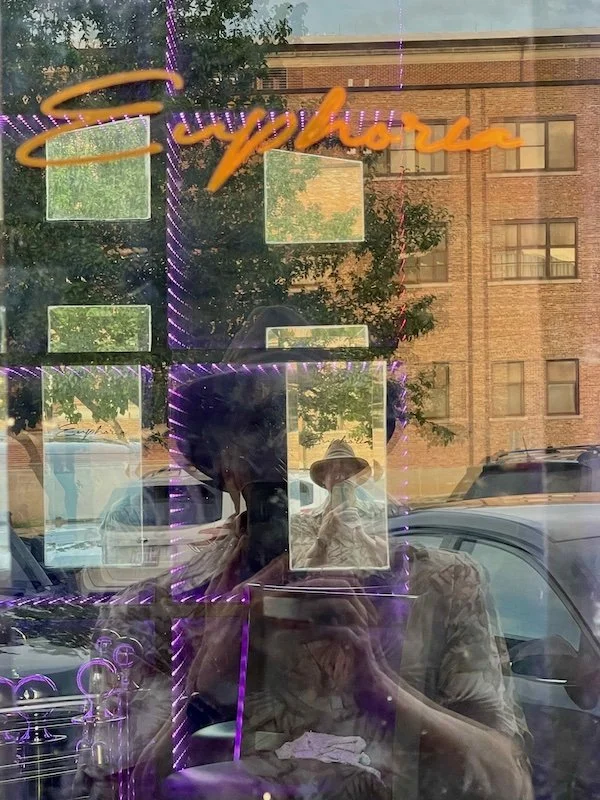Writing From the Inside Out 2022 Week 33 Prompts
based on Barbara Crooker’s Tomorrow
Read the poem
Do your own reflection on it, noting what it inspires in you
Feel free to use your own reflection as your prompt or…
Use the selection of prompts below the poem
Pick one that inspires you and write (feel free to use only one or write several poems using different prompts) or…
Don’t use any of the provided prompts and follow your inspiration from wherever it comes
Tomorrow
there will be sun, scalloped by clouds,
ushered in by a waterfall of birdsong.
It will be a temperate 75, low
humidity. For twenty-four hours,
all politicians will be silent. Reality
programs will vanish from TV, replaced
by the “snow“ that used to decorate
our screens when reception wasn’t
working. Soldiers will toss their weapons
in the grass. The oceans will stop
their inexorable rise. No one
will have to sit on a committee.
When twilight falls, the aurora borealis
will cut off cell phones, scramble the Internet.
We’ll play flashlight tag, hide and seek,
decorate our hair with fireflies, spin
until we’re dizzy, collapse
on the dew-decked lawn and look up,
perhaps for the first time, to read the long lines
of cold code written in the stars…
Please join Writing From The Inside Out by attending the read-around sessions on Friday afternoons. It’s free, fun, a great way to share, and reading a poem is optional. If you have not registered, click the button below; and if you have registered, you do not need to register again, simply use the link sent to you in your confirmation email. Register Here:
Next Read Around is August 19, 2022 at 4:00 PM (PST)
My Thoughts
Who has not found hope in the thought of a brighter tomorrow, especially during trying times or when haunted by the hollowness of our days? Tomorrow is a magic land, an ever-faithful promise, a counterweight to the tyranny of our troubles. Perhaps hope is more enduring and resilient when it is not pinned down in detail and all we see is a panorama of beckoning brightness and all we feel is that inviting warmth. Hope thrives in the freedom of that unencumbered openness where there is nothing we need to plan or put in perspective and no sticky particulars that demand attention. It is the metaphoric equivalent of a breath of much needed fresh air for oneself when the flames of oppression or depression are licking at our feet. Barbara Crooker’s poem, Tomorrow, breaks the rule of the open panorama by fleshing out a forecast for a brighter tomorrow. First in the realism of pleasant weather and then on to fantasize removal of some troubling realities of our world—politicians silenced and soldiers laying down their weapons—clearing the way for us us to step out of our inner city, to return to our childhood play ground, and then to look up to read what is written in the forgotten stars…
Barbara Crooker
https://www.barbaracrooker.com
https://www.encyclopedia.com/arts/educational-magazines/crooker-barbara-1945-barbara-poti
Prompt Menu
How has hope kept you afloat in troubled times? Journal or write a poem about how hope manifested in you. How do you represent the sense of a better tomorrow?
Journal or write a poem about the differences between wishing and hoping. Is there a difference in the level of detail you imagine with wishing versus hoping. What about engagement—is one moer engaging then the other? If there is a lack of detail in either or both, what happens when you add detail?
Follow Crooker’s lead and create your own hopeful forecast for tomorrow. You can use the prompt, “Tomorrow, there will be…”
Pick six aspects of reality that would disappear or change in some way in a better tomorrow. String them together in short sentences. Then describe how that world would change you.
What would allow you to feel carefree for a while in the world?
Journal or write a poem about simple chldhood activities that were so engaging you continued to do them until exhaustion.
Journal or write a poem about an initmacy of companionship with a friend or friends as a child, perhaps playing make-believe or sharing secrets on a bunk-bed sleepover, etc.
Journal or write a poem describing what the code written in the stars tells you?
As usual, write about whatever else inspires you from the poem or from life.
